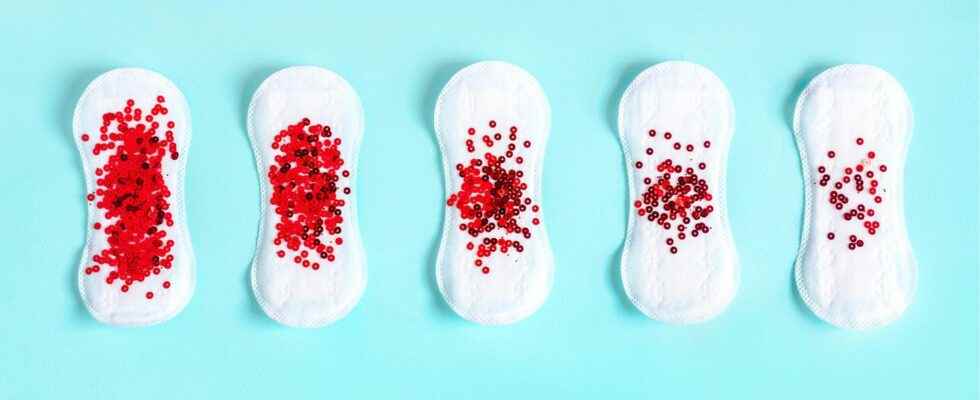Heavy menstrual bleeding
The best tips for a heavy period
© July Prokopiv / Shutterstock
Women who have heavy periods often suffer from other period-related symptoms as well. Here you can find out the causes and what helps!
What is heavy menstrual bleeding?
In gynecology, one speaks of heavy menstrual bleeding (“hypermenorrhoea”) when a tampon or pad has to be changed within two hours (actually, a change every four hours is sufficient). Normally, women lose between 60 and 80 milliliters of blood per menstrual period, with hypermenorrhea it is usually over 80 milliliters. About nine to 14 out of 100 women have excessive menstrual bleeding, which, on the one hand, promotes iron deficiency due to the loss of blood and, on the other hand, can intensify typical menstrual cramps.
Often these women are also affected by the so-called menorrhagia – this is an excessively long period of more than five to seven days. The cause is often the same for both phenomena.
Causes: How does heavy menstrual bleeding occur?
A few girls have heavy menstrual bleeding right from their first menstrual period, but many women only suffer from it much later – for example after the birth of a child, after the IUD has been inserted for contraception or as a result of hormonal changes. Heavy menstrual bleeding is the most common because the uterus cannot contract properly. The contraction loosens the mucous membrane in the uterus, which means that blood can be flushed out better for a certain period of time.
The following factors can prevent the contraction of the uterus:
- Benign growths such as fibroids or polyps
- Inserted spiral
- Inflammation of the uterus or fallopian tubes
- Adhesions (congenital or as a result of endometriosis)
- In some cases, disorders of the heart, kidneys or liver functions, blood clotting disorders, hormone changes or thyroid disorders
Interesting is, that cancer-related changes usually do not trigger heavy menstrual bleeding.
Symptoms: What are the effects of heavy menstrual bleeding?
There are three basic symptomswhich speak for a heavy menstrual period:
- Regular-size tampons and pads need to be changed about every two hours consistently.
- During the period, the woman suffers from severe tiredness, listlessness and physical weakness.
- Menstrual blood contains many thick clots of blood.
Help, anemia: what can happen if you have a heavy menstrual period?
Women who bleed excessively during their periods can become iron deficient. However, the body needs a lot of iron to build new red blood cells. If there is not enough, anemia occurs. The red blood cells transport oxygen throughout the body – if this supply decreases, we feel tired and exhausted. Pallor and cold hands and feet can also be a consequence.
Help with heavy menstrual bleeding: Tips for everyday life
Depending on the cause, excessive periods can be treated. Benign growths can be surgically removed, for example. The following treatment options also contain the symptoms:
- Medicines that reduce bleeding.
- Taking the pill – this stops the lining of the uterus from growing and bleeding.
- If there is no longer a desire to have children, the mucous membrane of the uterus can be sclerosed or removed.
To make everyday life easier with heavy menstrual bleeding and menstrual cramps, the following tips will help:
- If possible, work near the toilet if changing pads or tampons suddenly becomes urgent. Home office may also be an alternative.
- Dark clothing conceals any mishap stains.
- Waterproof pad in bed in case blood is lost overnight.
- The combination of tampon and bandage can also provide security against heavy bleeding.
- At work and in their handbags, affected women should always have appropriate hygiene items in stock to be on the safe side.
What can help against menstrual problems, we reveal in the article PMS. Are you missing your period? We explain possible causes to you! You can also find out here what spotting instead of a period means, what severe abdominal pain can mean and what an irregular cycle is. If you want to stop taking the pill, you can find out all about it here.

